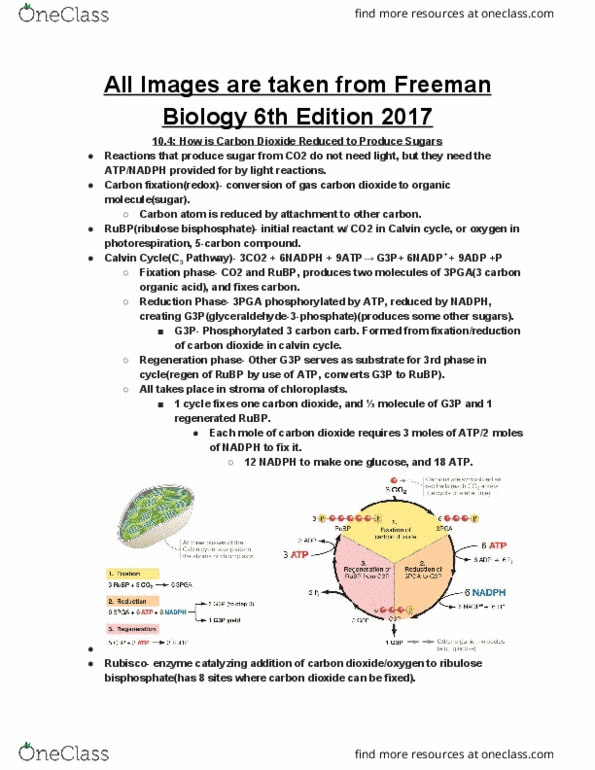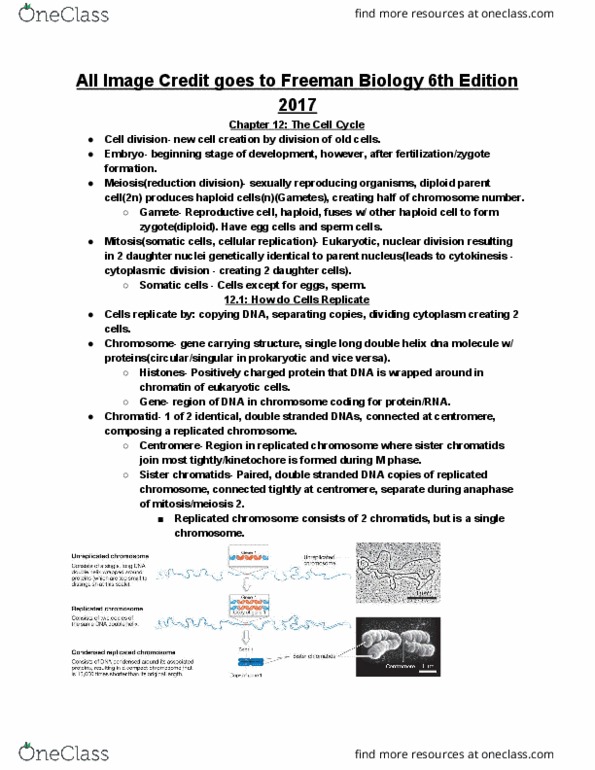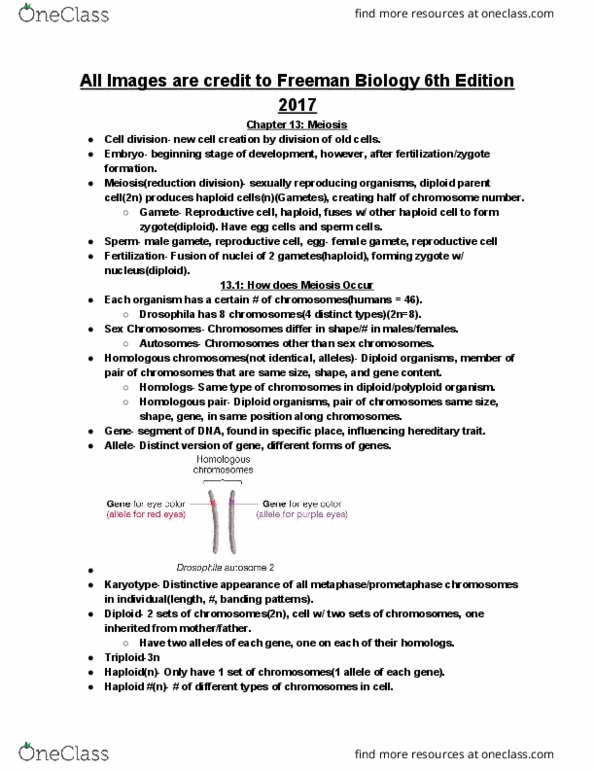Question 1
The process by which RNA is synthesized using DNA as a template is â¦
Select one:
a. replication
b. transcription
c. translation
d. inspiration
Question 2
Which of the following occurs during meiosis but not mitosis?
Select one:
a. DNA condenses into chromosomes
b. nuclear envelop disappears
c. homologous chromosomes separate
d. sister chromatids separate
Question 3
Which part of the animal life cycle is haploid?
Select one:
a. gamete
b. zygote
c. sporophyte
d. spore
Question 4
Single celled eukaryotic organisms are â¦
Select one:
a. viruses
b. bacterial
c. archaea
d. protists
Question 5
Which type of cellular division results in the formation of diploid cells from a diploid parent cell?
Select one:
a. mitosis
b. meiosis
c. interphase
d. A and B but not C
e. all of the above
Question 6
A sequence of DNA that codes for a single protein is a â¦
Select one:
a. gene
b. ribosome
c. mRNA
d. none of the above
Question 7
Which of the following is characteristic of animals?
Select one:
a. heterotrophic
b. sexual reproduction
c. embryonic development
d. all of the above
Question 8
All genes have only two possible alleles.
Select one:
True
False
Question 9
The presence of membrane-bound organelles is characteristic of â¦
Select one:
a. prokaryotes
b. viruses
c. bacteria
d. eukaryotes
Question 10
What are the building blocks of proteins?
Select one:
a. fatty acids
b. amino acids
c. nucleic acids
d. all of the above
Question 11
During which phase of the cell cycle does DNA replication occur?
Select one:
a. Mitosis
b. Interphase
c. Meiosis
d. Replicosis
Question 12
Which of the following characteristic is shared among fungi and animals?
Select one:
a. autotrophic
b. heterotrophic
c. cell walls
d. absorb nutrients
Question 13
A error in DNA replication that goes unrepaired is a â¦
Select one:
a. chromosome
b. chromatid
c. mutation
d. none of the above
Question 14
Alternate forms of a gene are called ________.
Select one:
a. chromatids
b. chromosomes
c. ribosomal subunits
d. alleles
Question 15
The physical expression of a genotype is the phenotype.
Select one:
True
False
Question 16
In complete dominance, a heterozygous genotype results in â¦
Select one:
a. a recessive phenotype
b. a dominant phenotype
c. a third and unique phenotype
d. none of the above
Question 17
Which theory explains the evolution of eukaryotes from prokaryotes?
Select one:
a. phagocytosis
b. endosymbiosis
c. pinocytosis
d. none of the above
Question 18
Which scientist experimented with plants to describe patterns of inheritance?
Select one:
a. Mendel
b. Chase
c. Einstein
d. Watson
Question 19
Which cellular organelle contains aerobic cellular respiration?
Select one:
a. chloroplasts
b. mitochondria
c. nucleus
d. lysosome
Question 20
Which of the following statements is false?
Select one:
a. Haploid gametes are formed by meiosis
b. Mitosis forms genetically identical daughter cells
c. Mitosis results in the formation of four daughter cells from a single parent cell
d. Mitosis forms diploid daughter cells from a diploid parent cell
Question 21
The first forms of life on Earth were ________.
Select one:
a. plants
b. microorganisms
c. birds
d. dinosaurs
Question 22
Which of the following is used to separate chromosomes during nuclear division?
Select one:
a. cytoskeleton
b. microtubules
c. actin and myosin
d. amoeboid movement
e. all of the above
Question 23
Which generation is most dominant in more primitive plants?
Select one:
a. bryophyte
b. sporophyte
c. gametophyte
d. androphyte
Question 24
Which of the following is characteristic of plants?
Select one:
a. autotrophic
b. contain chloroplasts
c. multicellular
d. all of the above
Question 25
During which phase of mitosis do chromosome line up along the middle of the cell?
Select one:
a. prophase
b. metaphase
c. anaphase
d. telophase
Question 26
During which phase of mitosis does DNA condense into distinct chromosomes?
Select one:
a. prophase
b. metaphase
c. anaphase
d. telophase
Question 27
The process by which DNA is used as a template to make new DNA is â¦
Select one:
a. translation
b. replication
c. transcription
d. allocation
Question 28
Which of the following is characteristic of plant but not animal cells?
Select one:
a. chloroplasts
b. water vacuole
c. cell wall
d. all of the above
Question 29
Which meiotic division is most like mitosis?
Select one:
a. Meiosis I
b. Meiosis II
c. Meiosis III
d. Meiosis IV
Question 30
Which enzyme catalyzes replication?
Select one:
a. DNA polymerase
b. RNA polymerase
c. Ribosome
d. all of the above





